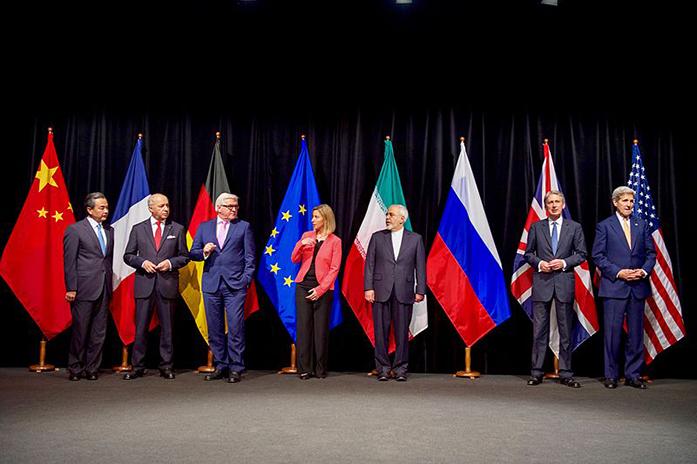Last week, President Obama penned an op-ed that ran in papers across the country. It was not an unusual step for Obama, who has previously written to persuade the nation about his policies from the Affordable Care Act to combating violent extremism. Now, the president is making his case for the Iran nuclear deal.
Formally known as the Joint Comprehensive Plan of Action, the deal aims to prevent Iran from acquiring nuclear weapons while maintaining its ability to generate nuclear energy.
Comparing the current nuclear scenario with the Cold War, Obama argues for “strong, principled diplomacy” to remove the prospect of a nuclear-armed Iran. With the acceptance of a multilateral deal between the United States, UK, France, China, Russia, Germany, and Iran, Obama said, this can be accomplished.
Though opposition to the deal has tapered off slightly since it was announced in July, congressional Republicans and presidential candidates have maintained that the deal concedes too much to the Iranian regime, whose leaders are well-known for their anti-American (and, generally, anti-Western) beliefs.
It is true that the animosity between the two countries still burns strong. At a ceremony on Sunday celebrating the reopening of the British Embassy in Iran, Foreign Minister Mohammad Javid Zarif, said the U.S. would need to change its “illogical attitude” toward Iran in order for the return of an American Embassy. Of course, after the 1979 Iranian hostage crisis in which American citizens were kept prisoner in the embassy for more than a year, it’s doubtful the United States will be too eager to return.
Regardless, the question of whether the deal goes far enough in restraining Iran remains. With the current deal, is there cause to worry that Iran could produce a nuclear weapon before we have a chance to stop it? The Daily Iowan Editorial Board doesn’t believe so.
First, it makes sense for Iran to fulfill its end of the bargain. International economic sanctions have crippled Iran’s economy and resulted in wild inflation, unemployment, and the devaluation of its currency. These sanctions will be lifted on the condition that Iran upholds its obligations under the deal, which includes removing its stockpile of enriched uranium necessary to create a nuclear weapon. If it fails to do so, the crippling economic measures will return.
There are a multitude of safeguards in the deal ensuring that even if Iran proves to be untrustworthy (which, based on the rhetoric of its leaders, is a likely prospect), it still would not be able to fly under the radar in nuclear production. International Atomic Energy Agency inspectors will be able to conduct searches of Iran’s facilities with 24 hours’ notice. If Iran attempts to stall this process, it would undoubtedly raise suspicion.
If Iran reneges on the deal, military action would still be available. Obama concedes that if Iran does not abide by the terms, “it’s possible that we won’t have any other choice than to act militarily.” According to a USA Today article, military officials have estimated that U.S. air strikes on Iran’s nuclear facilities would set back the process to produce a weapon by one to two years.
Simply put, the Iran nuclear deal as it stands is the best option available. It allows for a peaceful nuclear-energy program to exist while blocking the pathways to weapon proliferation. Opposing the deal at this point seems more about politics than pragmatism.







